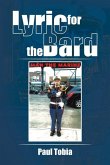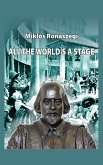The Bard and the Barman is a marked departure from humdrum explanations for Shakespeare's "lost years". Scholars have looked too close to home, failing to see that the Bard was a Francophile at heart, as is evident in one of his early plays, Love's Labour's Lost, obviously based on "Good King Henri" of France. Due to the journal of a barman at London's Bayside Inn, where Shakespeare stayed during his apprenticeship as a playwright, we now know the scoop. Not only does the barman shed light on Shakespeare's coming-of-age in France, but he reveals why the Bard had to destroy the sequel to his first attempt at comedy, leaving a batch of lovesick characters frozen in time. Thank goodness that the rather foolish but observant barman took it upon himself to follow in the footsteps of Plutarch, recording the Bard's confessions for posterity. Perhaps the barman's greatest revelation is that Shakespeare was no armchair traveler, but spent as much time as possible in France, where the climate and cuisine were more conducive to his tastes. His travels also help account for his encounters with Henri IV and Miguel de Cervantes (who died the day before Shakespeare). In short, the Bard didn't just write drama, he lived it.
Hinweis: Dieser Artikel kann nur an eine deutsche Lieferadresse ausgeliefert werden.
Hinweis: Dieser Artikel kann nur an eine deutsche Lieferadresse ausgeliefert werden.








